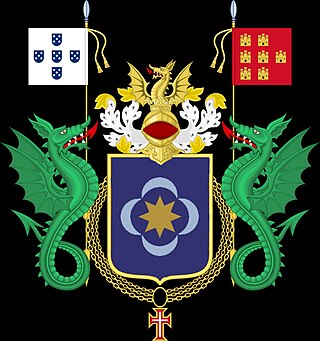Rio Grande is a river flowing to the Gulf of Mexico, forming a part of the Mexican-United States border.

Macunaíma is a 1969 Brazilian comedy film directed by Joaquim Pedro de Andrade, based on Mário de Andrade's novel of the same name. It was released in a dubbed version for American audiences in 1972 by New Line Cinema. On June 13 and July 12, 2005, European and Latin American syndicates of the TV5 network aired the film in its original Portuguese with French subtitles. It was rereleased internationally in 2009.

Grande Otelo was the stage name of Brazilian actor, comedian, singer, and composer Sebastião Bernardes de Souza Prata. Otelo was born in Uberlândia, and was orphaned as a child. He kept running away from the families that adopted him; only when he took up art did his life become settled.

Vai que é Mole is a 1960 Brazilian film directed by J. B. Tanko and starring Grande Otelo, Ankito and Jô Soares.

Carvalho, meaning 'oak', is a Portuguese surname. Origin: Celtic toponymic, from (s)kerb(h)/karb.

Noites Cariocas is a 1936 Brazilian-Argentine comedy film directed and written by Enrique Cadícamo. It is based on a story by F. Gianetti. The film was released in both Portuguese and Spanish.

Cándida is a 1939 Argentine musical film drama directed by Luis Bayon Herrera. The tango film premiered in Buenos Aires, and starred Juan Carlos Thorry.
Casa Grande is a city in the U.S. state of Arizona.

Quilombo is a 1984 Brazilian drama film directed by Carlos Diegues. It was entered into the 1984 Cannes Film Festival. The film is based on the history of the Quilombo dos Palmares, a community of escaped slaves that numbered in the thousands during the 17th century in north-eastern Brazil.

The Grande Prêmio do Cinema Brasileiro, more popularly known as the Grande Otelo, is a Brazilian film award given annually by the Brazilian Academy of Cinema. It was established in 2000 as the Grande Prêmio Cinema Brasil by the Ministry of Culture of Brazil that presented it in 2000 and 2001. In 2002, the newly established Academia Brasileira de Cinema took on the role of delivering the award which was then renamed to Grande Prêmio do Cinema Brasileiro.
Saraiva is a Portuguese surname. It may refer to:

Samba in Berlin is a 1943 Brazilian musical comedy film directed by Luiz de Barros and starring Mesquitinha, Laura Suarez and Dercy Gonçalves. It is a World War II film part of the popular tradition of chanchadas, aiming to poke fun at Nazi Germany with whom Brazil was now at war.

Events in the year 1936 in Brazil.

Jubiabá is a 1986 Brazilian-French romantic drama film directed by Nelson Pereira dos Santos. Based on the novel of the same name by Jorge Amado, it stars Charles Baiano and Françoise Goussard as two lovers.
Catita was a stock character played by Niní Marshall in many Argentine comedy films of the 1940s and 1950s from the character's first appearance as a cook in Mujeres que trabajan (1938) up to Catita es una dama (1956) directed by Julio Saraceni. Catita was a stereotypical foul-mouthed and disruptive daughter of Italian immigrants in Argentina.

Samba is a 1965 Brazilian-Spanish musical film directed by Rafael Gil and starring Sara Montiel, Marc Michel and Fosco Giachetti.

Cinédia was a Brazilian film studio established on 15 March 1930 in Rio de Janeiro, and remained in continual operation until 1951.
The Terrible Twosome is a 1953 Brazilian comedy film directed by Carlos Manga and starring Oscarito, Grande Otelo and Edith Morel.
Onde Estás Felicidade? is a 1939 Brazilian film produced by Adhemar Gonzaga and directed by Mesquitinha. The film is based on the 1933 novel of the same name by Luis Iglesias.
This page is based on this
Wikipedia article Text is available under the
CC BY-SA 4.0 license; additional terms may apply.
Images, videos and audio are available under their respective licenses.












